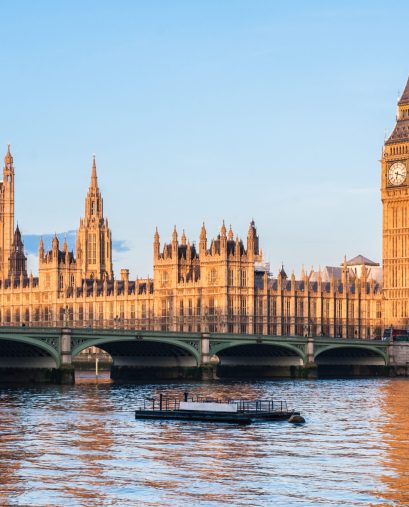To Holiday Abroad or Not? Implications for Employers

With recent changes to the Government’s traffic light system for entering England throwing many employees’ summer holiday plans into disarray, what are the implications for employers?
Red, Amber, Green….
Government guidance is that you should not travel to red list countries, but if you have done so in the 10 days before you travel to England, you must have a negative COVID-19 test 3 days before you travel, and on arrival you must quarantine in a managed hotel for 10 days and take a COVID-19 test on day 2 and day 8.
Government guidance is also not to travel to an amber list country, but if you do so in the 10 days before you arrive in England, you must have a negative COVID-19 test 3 days before you travel. On arrival you must quarantine at home for 10 days and take a COVID-19 test on day 2 and day 8. Under the Test to Release scheme, you may opt to take a private COVID-19 test (i.e. not one provided by NHS Test and Trace) on day 5, which if negative, means you can end your quarantine at this point.
If you have been to a green list country in the 10 days before you travel, you must take a COVID-19 test 3 days before you travel and take a further test 2 days after arrival (which you must have booked before you travel).
If you travel back to England from a green list country but have a transit stop in a red/amber list country, the rules for the higher risk country will apply.
Countries on the new ‘green watch list’ are those that are at risk of moving to amber without warning.
Double-jabbed?
The government has announced its intention to introduce a scheme for double-jabbed travellers to be exempt from quarantine on return from amber list countries later in the summer, and it is believed that unvaccinated children will be allowed to travel with their parents. At present however, this is just an “intention” and there is no commitment that it will happen.
The situation therefore, leaves a very uncertain summer for employees planning their holidays, and raises several issues for employers:-
- Approval of holiday requests – Whilst approval of holiday requests is normal, employers do not ordinarily seek to approve where the employee is planning to spend their time off. If an employee travels to a green or green watch list country however, there is a risk of having to quarantine for up to 10 days on their return, and this is certainly the case if they travel to a red or amber country. For employees who cannot work from home whilst they quarantine, employers must decide how cover can be provided for these additional days off and whether employees will be paid. Employers may treat working days during this period of quarantine as unpaid leave or require employees to take it from their remaining annual leave. As for all pandemic related issues, it is advisable for employers to consult with employees and make their position clear, but each case will be dependent on its own facts so allowances may need to be made for individual situations.
- A disciplinary matter? – If employers have asked employees to seek approval before they travel to countries from which they may need to quarantine on return, e.g. for workforce planning reasons, and an employee fails to do so, this may be a potential disciplinary matter but each case should be assessed on its facts.
- Holiday roll-over – Another issue facing employers as a result of the pandemic is significant amounts of holiday accrued from last year. Whether or not their employment contract permits holiday to be carried forward, the Government passed legislation in March 2020 in response to the pandemic to protect workers from losing their 4 week statutory holiday entitlement. If therefore, it has not been reasonably practicable for employees to take holiday in the year to which it relates, they can carry forward any untaken amount into the following 2 holiday years. In deciding whether it was ‘reasonably practicable’ for their employees to do so employers should consider;
- whether their business faced significant increases in demand due to COVID-19 which they would not meet using alternative measures, such as temporary cover;
- the ability of the rest of their workforce to provide cover; and
- when, for their health and well-being, their staff needed to take a break.
Employers should do all they can to encourage employees to take their full holiday entitlement in the leave period. This not only ensures they comply with their duty to take care of employees health and safety, but also avoids the financial implications of significant amounts of accrued leave on termination of employment.
- Furloughed employees –Employees on furlough are also accruing their usual holiday entitlement, and they can take their holiday without disrupting their furlough. Employers can require employees to take their holiday whilst on furlough, but they should communicate with these employees and explain their reason for doing so before enforcing this. They should take account of any individual circumstances, such as employees who are self-isolating or clinically or extremely clinically vulnerable, if this prevents them from enjoying their time off on when required to take their holiday.
- Working abroad? – Some employees who are on holiday and can remain and work from abroad may ask to do so. Depending on the length of such an arrangement other issues may then arise which were considered in our recent article.
In these uncertain times, employers should consider communicating their position to their employees generally ahead of the peak summer holiday period, stressing the importance of taking leave so that employees have a chance to rest and relax, but for those who choose to travel abroad, how any post-holiday quarantine will be treated.
Photo by Tsvetoslav Hristov on Unsplash
If you have any questions about this article, please don't hesitate to get in touch with Fiona.
Fiona Dunger Consultant Solicitor - Employment +44 (0) 20 7846 2370 fiona.dunger@jurit.comOr another member of the Employment Team.
Please note this paper is intended to provide general information and knowledge about legal developments and topics which may be of interest to readers. It is not a comprehensive analysis of law nor does it provide specific legal advice. Advice on the specific circumstances of a matter should be sought.











